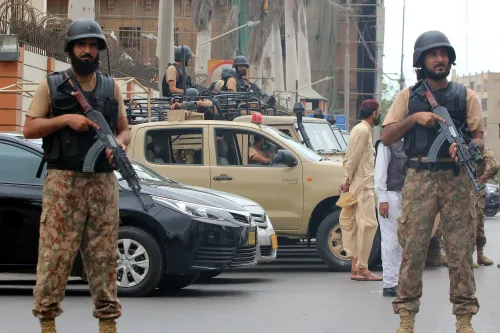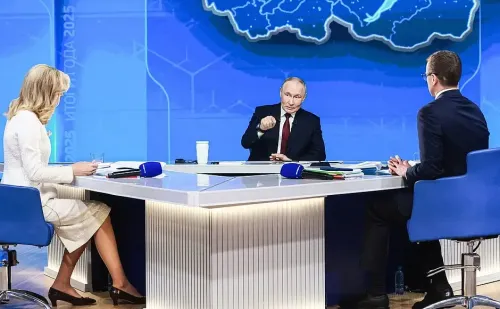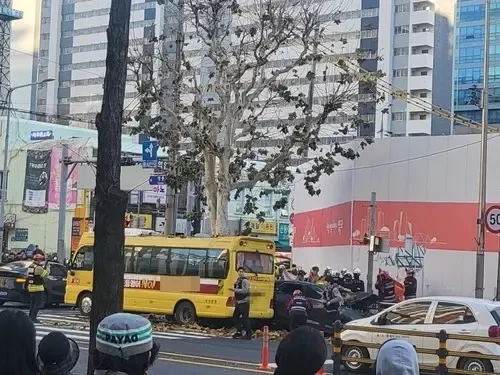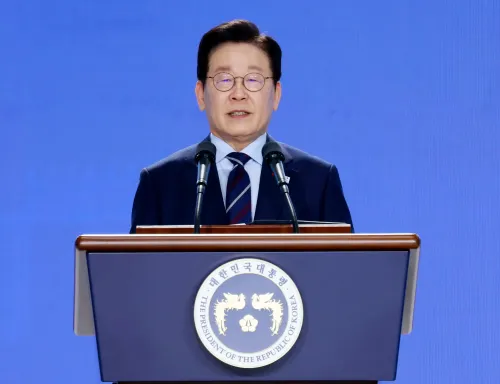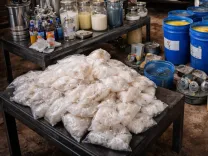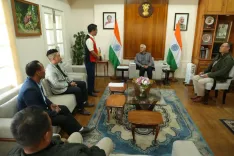How is the Indian delegation in Syria enhancing bilateral cooperation?

Synopsis
Key Takeaways
- Strengthening bilateral ties between India and Syria.
- Focus on healthcare collaboration.
- Discussions on pharmaceutical manufacturing.
- Implementation of a scholarship program for Syrian students.
- Commitment to support training programs for Syrian professionals.
Damascus, July 29 (NationPress) An Indian delegation visiting Damascus engaged with Syrian Minister of Foreign Affairs and Expatriates Asaad Hassan Al-Shaibani to discuss strategies for strengthening their bilateral ties, focusing on the mutual benefits for both nations.
As per a statement from the Syrian Foreign Ministry's Telegram channel, "Minister Asaad Hassan Al-Shaibani welcomed an Indian delegation in Damascus, led by Suresh Kumar, Director of the West Asia and North Africa Department at the Indian Ministry of External Affairs."
According to the ministry, "The discussions revolved around shared interests and methods for enhancing relations between the two nations for the welfare of their citizens."
India has historically enjoyed amicable relations with the previous Assad administration, and this recent interaction is viewed as part of a wider initiative to enhance diplomatic and developmental collaboration with the existing government in Damascus.
In addition to their meeting with the Syrian Foreign Minister, the Indian delegation also conferred with Syrian Health Minister Musab Al-Ali on Monday.
The conversations primarily focused on improving cooperation in the healthcare sector, especially in areas like pharmaceutical production and medical education.
During the discussions, both parties explored the rollout of a scholarship program for Syrian students and the establishment of a specialized engineering cooperation initiative designed for Syrian government staff.
Al-Ali highlighted Syria's strong desire to cultivate a robust and enduring partnership with India in the fields of pharmaceuticals and healthcare.
According to Syria's official news agency SANA, he stressed that such collaboration would bolster the national health infrastructure and enhance the availability of vital medications.
Suresh Kumar reaffirmed India's commitment to supporting Syria by funding specialized training programs for Syrian professionals.
He also assured that India would persist in coordinating the training of Syrian doctors at Indian institutions while promoting deeper ties in nursing, pharmaceuticals, and drug exports.


